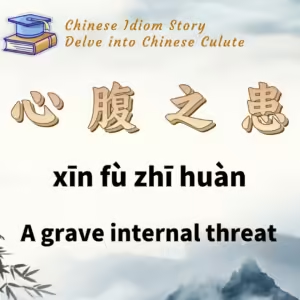
Chinese Idiom: 前功尽弃 (Qian Gong Jin Qi)
English Translation: All previous achievements are in vain
pīn yīn: qián gōng jìn qì
Idiom Meaning: This idiom signifies that all prior efforts and accomplishments have been wasted or lost.
Historical Source: “Records of the Grand Historian” (《史记》), specifically the section titled “The Annals of Zhou” (《周本纪》).
Idiom Story:
The story takes place during the late Warring States period, when the strategist Su Li (苏厉) advised King Hao of Zhou (周郝王) on how to counter the military threat posed by the formidable general Bai Qi (白起) of the Qin state. Su Li urged the king to take immediate action to protect the capital of Wei, Daliang (大梁), as its fall would jeopardize the Zhou dynasty.
To illustrate the gravity of the situation, Su Li referenced the famous Chu general Yang Youji (养由基), known for his exceptional archery skills. He pointed out that Yang had successfully hit his target a remarkable ninety-nine times. However, if he were to miss just once, all his previous successes would be rendered meaningless—hence, “前功尽弃.”
This phrase serves as a reminder of the importance of perseverance and vigilance, emphasizing that one failure can negate all past achievements if one becomes complacent or careless. It encourages individuals to remain focused and committed to their goals, despite previous successes.






